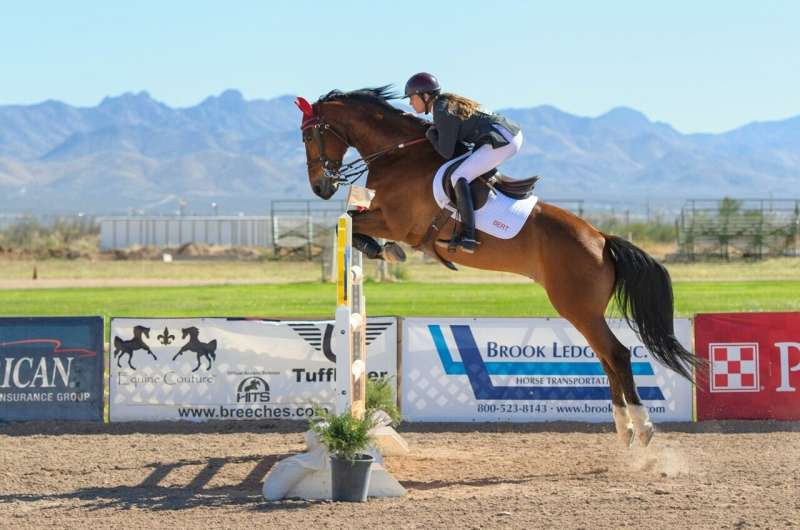This article has been reviewed according to Science X's editorial process and policies. Editors have highlighted the following attributes while ensuring the content's credibility:
fact-checked
peer-reviewed publication
trusted source
proofread
Study reveals longer-term impact of sport-related brain injuries

Almost half of people who suffer a sports-related traumatic brain injury are still experiencing physical symptoms after six months, a new study by the University of Stirling has found.
The study, "Contrasting Characteristics and Outcomes of Sports-Related and Non–Sports-Related Traumatic Brain Injury," was published in JAMA Network Open.
Researchers also found that certain sports were more often associated with traumatic brain injury (TBI)—horse riding (22% of all sport-related cases studied), skiing (17%), and football (13%).
Researcher Michail Ntikas of the University's Faculty of Natural Sciences analyzed data for 4,360 patients from 18 European countries who attended hospital with TBI and had a brain scan.
The study compared 256 people with sports-related concussions (5.9% of the cohort studied) to 4,104 people who sustained a concussion another way.
Patients were assessed when attending hospital immediately after their injury, then followed up at three months and six months.
Ph.D. researcher Michail Ntikas said, "We found that people with brain injury in sports who attend hospital still have persisting problems six months later.
"Even those with a mild traumatic brain injury and a normal brain scan, sometimes also called concussion, still have problems affecting daily life six months later, showing that recovery is poorer than expected."
Incomplete recovery
The team used standard scales that show when someone has incomplete recovery, persistent disability, and persistent post-concussion symptoms.
After six months there was incomplete recovery in 46% of all patients with sport-related brain injury, 39% in those with mild sport-related brain injury, and 31% of individuals with mild sport-related brain injury and a normal brain scan.
Dr. Magdalena Ietswaart, a Cognitive Neuroscientist at the University of Stirling who co-authored the paper, said, "These findings caution against taking an overoptimistic view of outcomes after sport-related TBI, even if the initial injury appears mild.
"Sport-related concussion is generally thought of a quite benign and not a major source of concern because the injury is considered mild.
"This research shows that we should take sport-related concussion seriously, especially those cases that require attendance at hospital and consequent referral for brain scanning."
Different outcomes
There have been many previous studies examining concussion in sport, but little is known about individuals who present at hospital with TBI incurred during sport-related activities.
Professor Lindsay Wilson of the University of Stirling's Division of Psychology, senior author of the study, said, "It is usually thought that people with sport-related TBI will have good outcomes, particularly if they have an injury that is classified as mild, but these patients have never been compared to those with non-sport-related TBI on a range of different outcomes."
More information: Michail Ntikas et al, Contrasting Characteristics and Outcomes of Sports-Related and Non–Sports-Related Traumatic Brain Injury, JAMA Network Open (2024). DOI: 10.1001/jamanetworkopen.2023.53318



















